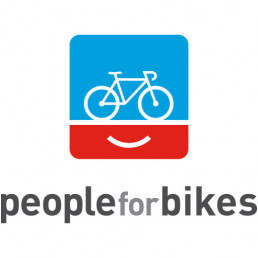It’s Time to Act for the Bicycle Commuter Act: Ensure Inclusion in Inflation Reduction Act
The North American Bikeshare and Scootershare Association (NABSA), League of American Bicyclists, and PeopleForBikes call on policy-makers to act to ensure the Bicycle Commuter Act, which would enable broader use of both personal and shared bicycles by reinstating and improving the federal bicycle commuting benefit, is included with climate provisions in the Inflation Reduction Act.
The Bicycle Commuter Act would reverse the bicycling commuter benefit’s suspension from The Tax Cuts and Jobs Act (P.L. 115-97), and improve the benefit by making it a pre-tax benefit rather than reimbursement, allowing up to $81 per month for bicycle commuting (adjustable with inflation), and expanding it to include bikeshare and e-bikes as explicitly eligible. The House-passed Build Back Better Act, which included these provisions, also extended eligibility to e-scooters. Additionally, the bicycle benefit can be used in combination with the parking and transit commuter benefits.
Throughout the last few years, the United States has experienced a bike boom, emphasizing the opportunity with reinstatement of the bicycle commuter benefit. Spending on bicycles and accessories grew from $6.1 billion in 2019 to almost $8 billion in 2021, according to data released by the U.S. Bureau of Economic Analysis. E-bike sales in the U.S. increased 240% from July 2020 to July 2021, and Deloitte expects 130 million e-bikes to be sold globally between 2020 and 2023. During that time, there have also been prominent successes with e-bike purchase programs in cities like Corvallis, OR and Denver, CO, as well as approval of statewide e-bike purchase programs in CA, CT, and HI.
Shared micromobility systems– shared bikes and scooters– have also kept pace with the bike boom. NABSA’s 2020 Shared Micromobility State of the Industry Report calculates that riders took over 83 million trips in North America, with 67.9 million of those trips in the US alone. Importantly, 36% of shared micromobility trips replace a car trip, and in 2020 offset approximately 29 million pounds of CO2 emissions. Commuting has also been found to be a primary use case of shared micromobility systems, as Lyft’s 2021 Multimodal Report shows, with 35% of riders reporting they used shared micromobility to get to or from work.
In this time of urgent need for climate action, bicycles and shared micromobility represent the most efficient forms of urban transportation, aiding in the reduction of carbon emissions and reducing reliance on personal vehicles. Combine that with sustained high gas prices and public transit service reductions which have further exacerbated inequity in our transportation systems, and the need is clear for the common sense and bi-partisan Bicycle Commuter Act to be included with other climate provisions included in the Inflation Reduction Act.
For constituents, take action today to ask your federally elected officials to invest in a commuter benefit for biking, bikesharing and scooting to work.








